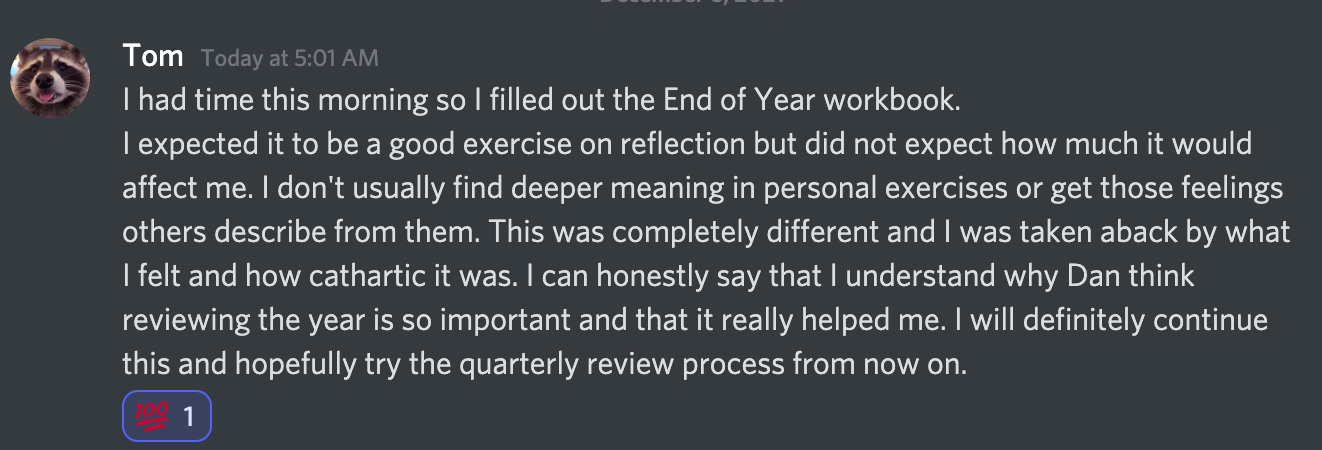The Critical Path

Better Questions is supported by readers like you. If you get value from my writing, consider becoming a supporting member. Exclusive content, weekly deep-dives, free beta access to future courses, and more. Thanks.
----
There are many ways to live a deep and rewarding life.
All of them, however, will require growth of one kind or another.
Regardless of your goals, you will need to overcome obstacles both internal and external. You will need to get better at something or learn to let something go.
In short: you will have to purposefully change.
Over the last ten years, I have developed a way of doing this.
It isn't easy. It isn't fast.
But it works.
Here is the entire process:
---
1. Reduce sources of mimetic desire.
We tend to want what we think others want. We tend to mold our desires along "acceptable" lines - changing our needs to align with what we perceive as "acceptable."
As a result, we barely know ourselves. We get "what we want" only to discover that "what we wanted" wasn't really what we wanted. On to the next one.
You need to know what you want. Only then can you move forward.
Because desire is "mimetic" - spread from person to person - self-discovery necessarily starts by limiting sources of outside influence.
This can mean being deliberate - or abstaining altogether - from social media.
This can mean limiting the influence of friends and family.
This can mean redefining what you have to do to place yourself in a "category of one" with no established best practice.
We must be deliberate in choosing what we allow to influence our desires...
...and even then, be on our guard when we feel ourselves being pulled to want what others want, simply because others want it.
---
2. Define the gap.
All goals and ambitions boil down to understanding where we are, where we want to be, and the gap between the two.
Very few will define these things concretely.
This is because ambiguous and vague goals protect our egos. By defining success, we are also defining failure. If we admit to desiring a particular outcome, and then that outcome doesn't materialize, we fail.
Smart people, in particular, build their self-images around their talent, intelligence, and skill. Failure is perceived as threatening that self-image: "if you're so smart, how come you didn't achieve your goal?" The spectral parent withdraws their imaginary love, and the inner child becomes convinced they will be abandoned.
Failure is life or death. Better to play it safe: can't fail if you never define what winning looks like. "Oh, I'm not very competitive. I'm just here to have a good time."
The act of defining the gap - the space between your current state and what you desire - is an act of courage. It immediately places you apart - you are willing to risk, willing to dream, willing to act. Success may never materialize, but you are willing, at least, to imagine it might be so.
---
3. Create an internal feedback loop.
An internal feedback loop is simply a disciplined practice of reflection and introspection.
Each week, you must know: have I succeeded in reducing the gap, even in a small way? Am I closer today than I was last week?
Once you can see your progress (or lack thereof) clearly, you must introspect:
What went well? What didn't? Where did I fall short? Why was that? What must I amplify, and what must I reduce? Where am I failing myself? What can I change?
It is so easy to simply start anew each morning, hoping against hope that things will be different this time.
The tasks stream in. The notifications buzz. Days fly by, then weeks. You're tired. Everything is difficult.
And before you know it, it's over. Just like that. Maybe sooner - much sooner - than you expected.
Without introspection, there is no learning. Without learning, there is no growth.
We can't wait for "a free moment." We can't wait for "the right time." They never come. Life is too chaotic.
We need to plan, schedule, and relentlessly protect our time of introspection. We must treat it as critically important as time in the gym, with our families, relaxing, working, and sleeping.
Journaling is the best way, in my opinion, to introspect. Decide on the questions that are most important to you - the things that matter most in closing the gap. Then answer those questions each week, in as much detail as you need.
Do this every week. Regularly review what you've written (I do this quarterly, but choose a rhythm that makes sense for you). Internalize the lessons you've learned, and make sure to change your behavior moving forward.
---
4. Own your shit.
This is the hardest step of all and is optional. However, it will massively accelerate your progress.
Each week, after you introspect, share how you fucked up (and you will) with a group of like-minded people doing the same.
This does three things:
a.) Destroys your ego. You get used to sharing your most embarrassing failures. You become immune to failure in general - it becomes normal. Early on you dread being vulnerable...and then, over time, it becomes natural.
b.) Attracts feedback. People react to you, some negatively, some positively. You get advice, some good, some bad. You will implement some of that advice, and see if it creates positive returns in your own life. You get used to spotting "good advice" and "bad" - and to notice when people's responses to you are far more about them than anything you said.
c.) Exposes you to the struggles of others. Most people struggle in secret, making their successes look far easier than your own. Being witness to someone's process of closing the gap eliminates this illusion. You see where they fall short, and will start to notice patterns - similarities to your struggles. You try to give advice, and over time learn to separate "being right" from "being useful."
---
Four steps. Simple, but not easy.
I'm probably going to teach a class this year - a build a group of people who want to support one another.
The last class I ran was over a year ago, and people had really strong reactions to it:

This one's going to be 10x better. :-)
If you're interested, join the Telegram channel here and I'll announce it when it's ready.
I don't know if I'll talk about it on here again or not. I want to keep it small.
Yours,
Dan
Better Questions Newsletter
Join the newsletter to receive the latest updates in your inbox.
